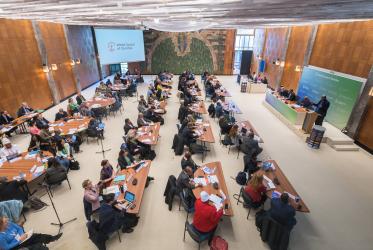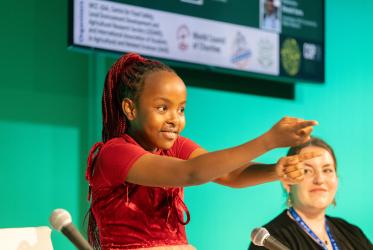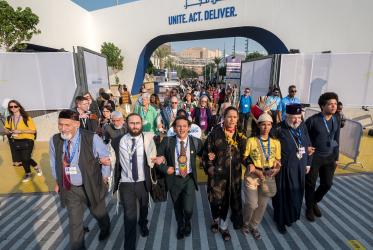Displaying 21 - 40 of 1642
Que peuvent faire les Églises pour prévenir l’esclavage moderne?
26 February 2024
¿Qué pueden hacer las iglesias para prevenir la esclavitud moderna?
26 February 2024
Was können Kirchen unternehmen, um moderne Sklaverei zu verhindern?
26 February 2024
What can churches do to prevent modern slavery?
22 February 2024
WCC and partners to host seminar in Assisi on Feast of Creation
21 February 2024
WCC to share key insights at World Social Forum
09 February 2024





